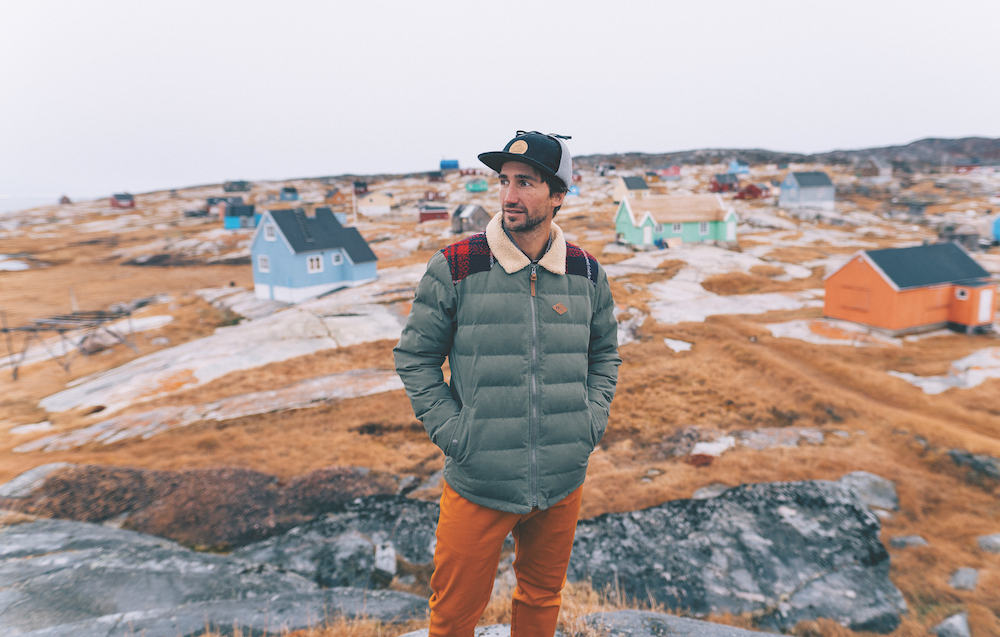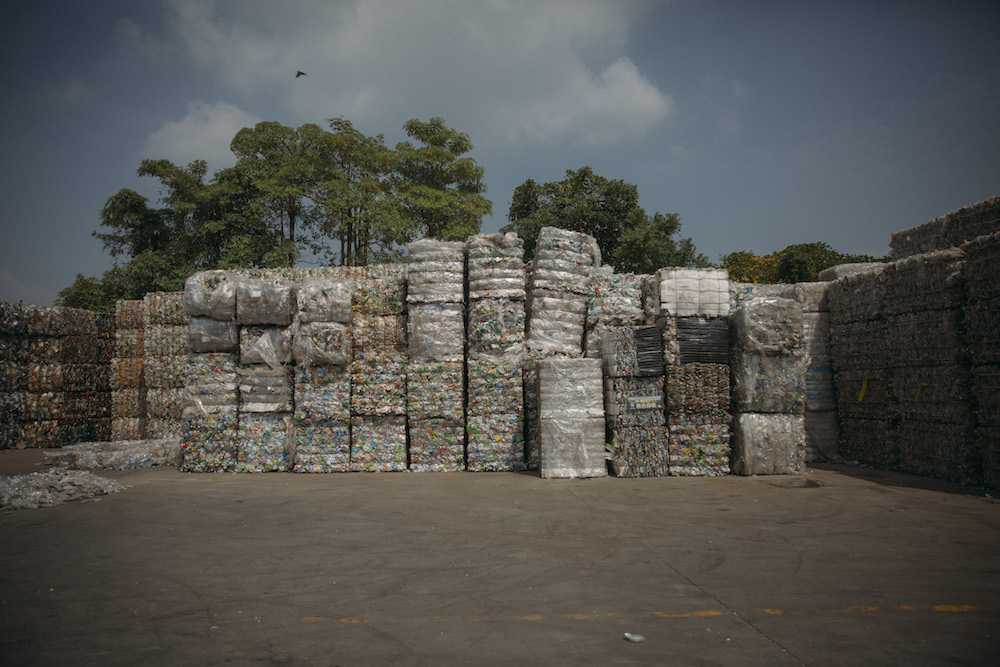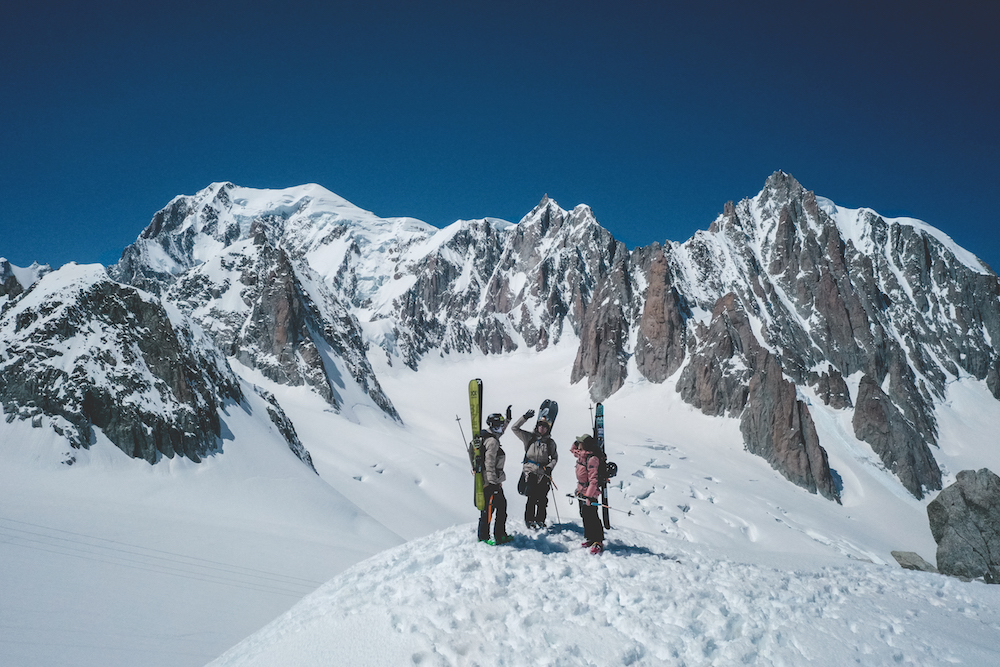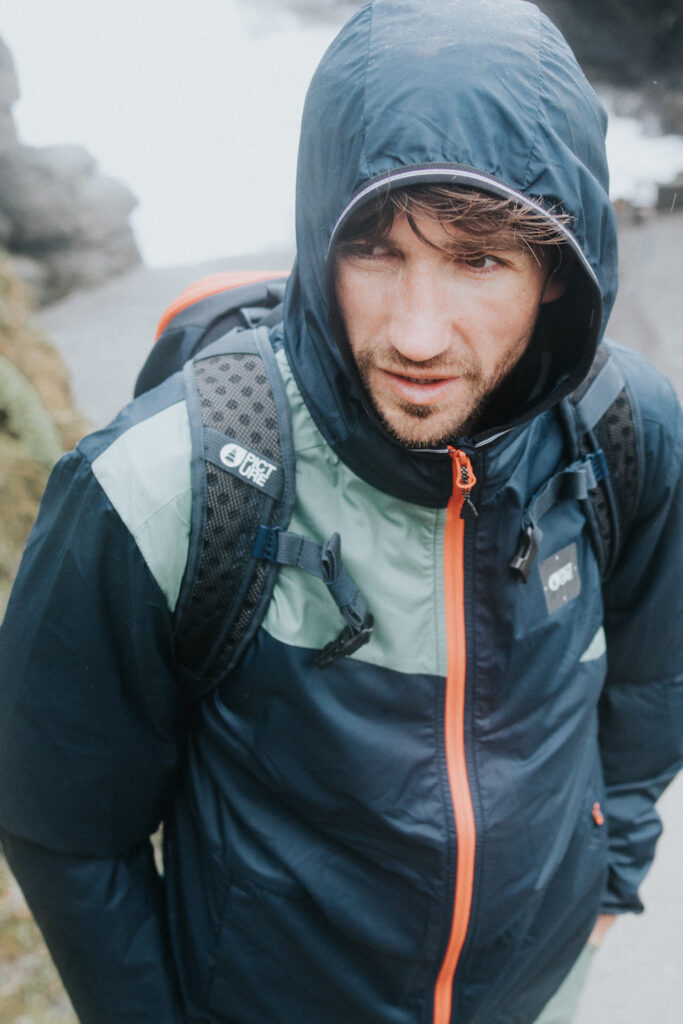Behind the Brands | Picture Organic Clothing


Picture Organic Clothing’s passionate co-founder Julien Durant explains how three friends on an eco-mission built one of the most influential green gear companies on the planet
Words | Sophie Nicholson
Julien Durant: Jeremy, Vincent and I have been super close since we were kids and grew up together skating and snowboarding around Clermont-Ferrand [central France]. We always talked about starting a brand but ended up going our separate ways.
After a few years we all realised that following the ‘normal’ path and working in big cities for big companies wasn’t for us. So we decided to move home and start working together to build something we believed in. Jeremy was determined any brand we’d create must be committed to sustainability. His vision was to start a mountain brand with fresh designs and a whole new philosophy. A ‘cool version’ of Patagonia with Burton snowboard style.
JD: For sure it is a dream come true! Working with friends can be challenging, of course, but it works for us because we share the same vision, the same values, we trust each other and we’ve always been transparent about money. Our primary motivation has always been to create a sustainable brand that can be profitable without necessarily having to focus purely on profit. We are very protective of our passion and we look after the brand and our employees in the same way a protective father cares for his family. It’s more than simply a business for us.
JD: It’s a matter of what goes into the cake. If you look at the outdoor industry as the whole cake, most of the businesses within that cake are making profit without being genuinely sustainable. So, if our market share within the cake grows, the end result is that the industry is more sustainable.

JD: Bio-sourced materials, such as sugarcane polymers, are renewable and recyclable; they have a much lower carbon footprint than recycled polyesters.. All of the products in this winter’s Expedition line, including the Aeron, Demain and Welcome jackets, are made from bio-sourced materials. But producing sustainable products is really just the tip of the iceberg; the major issue and the biggest part of any company’s footprint is the energy you use to create those products. Burning fossil fuels generates 85% of global air pollution, so if we wipe out our use of fossil fuels we can have a real impact. We’re working with low carbon consultancy Carbone 4 and using their data to analyse and improve our global footprint by moving our production to carbon neutral countries, for example.
JD: These days it is much easier to go down this line as a) there is more demand for sustainable products from the end consumer, and b) it’s less expensive to produce recycled polyester than it was 12 years ago. It’s very important for us to produce sustainable yet affordable products so we have had to make sacrifices elsewhere within the company.
JD: When we started we wanted to become a cooler, younger version of Patagonia! I have lots of respect for them; what they have pioneered and achieved in the industry is massive. 1% For The Planet is a global triumph and they are involved in so many initiatives behind the scenes. The fact that they are still a family-owned independent company is the key to their success.

JD: Offsetting by planting trees is basically just paying some money to someone so you can say “I am carbon neutral” rather than investing in something, or making lifestyle changes, that effect real change. When it comes to skiing, a recent study revealed that the main contributor to the carbon footprint of a ski resort is tourist traffic. Running chairlifts and gondolas has next to no effect but travel to and from resort contributes 77% to a resort’s overall footprint. So, if you really want to lessen your carbon footprint, you have to change your transport habits. This is both surprising and empowering as it shows we can make a big difference by making a relatively simple change.
JD: From a business point of view we want to be able to continue to develop in a ‘clean’ way, even if this means that we end up growing more slowly as a result. When it comes to sustainability, we hope to develop products that can actually have a positive impact. For example, some of our suppliers are already working on developing fibres from CO2 so I’m sure there will be some amazing opportunities in the future. Another goal would be to create genuinely local products – i.e. products sold in Europe, produced in Europe and made from European fibres. To reduce our footprint we need to reduce the actual journey of the product.
